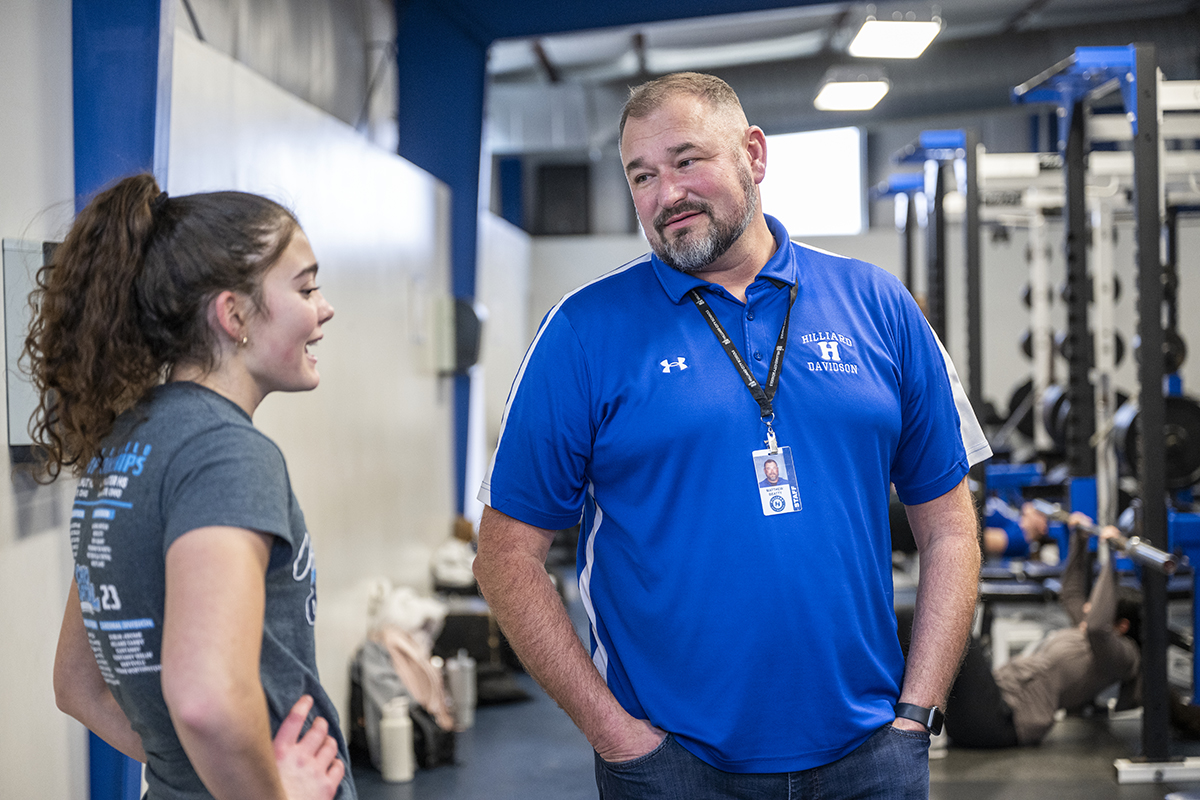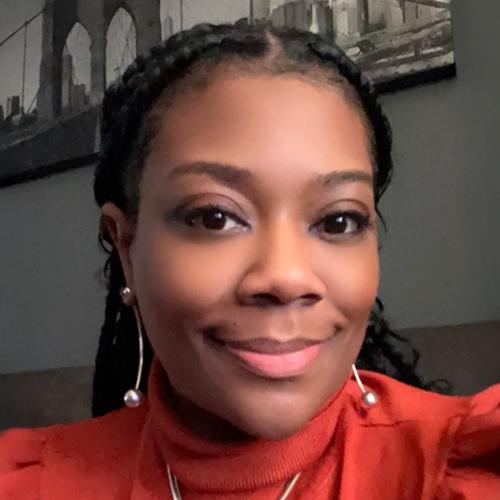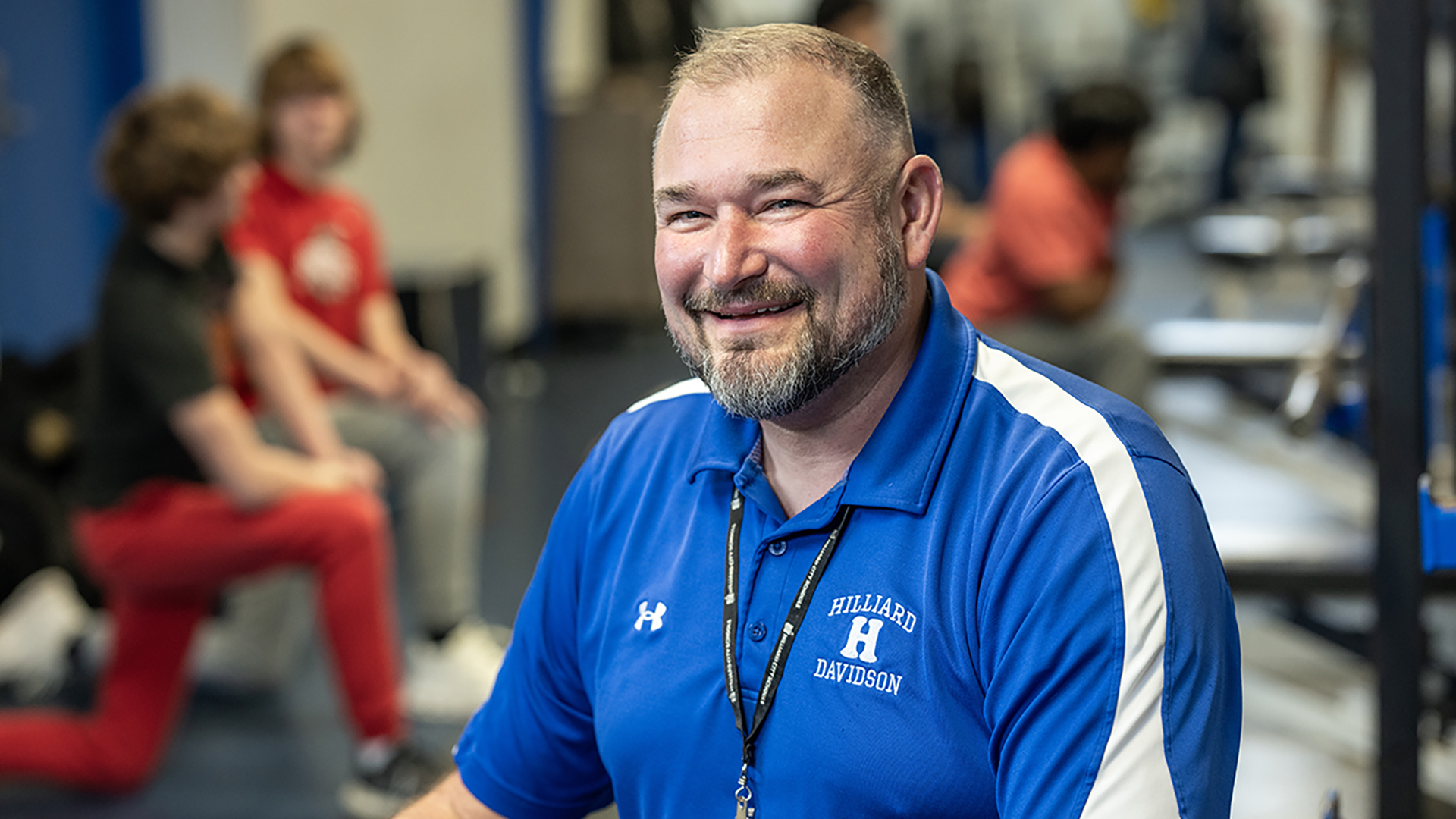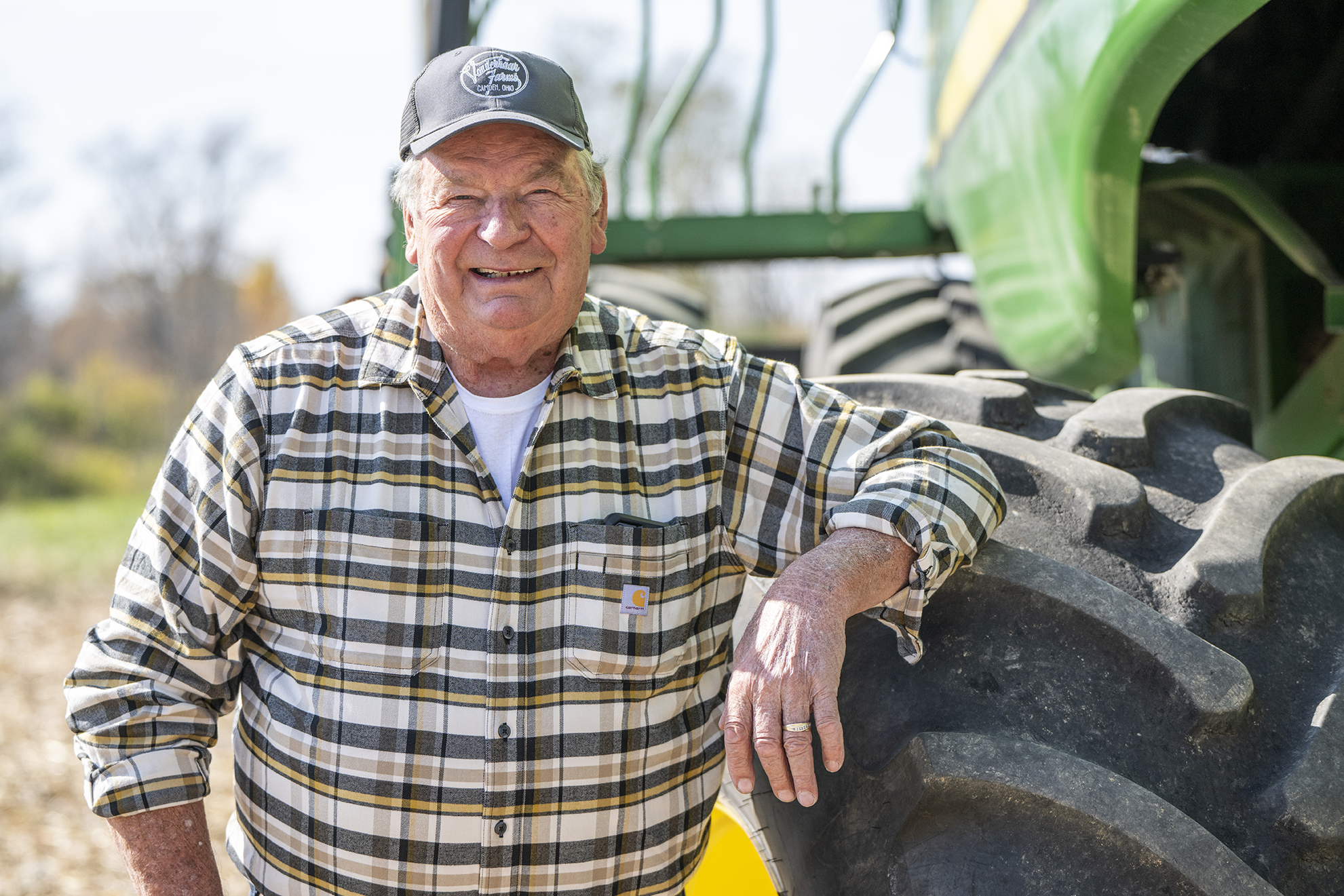Coaching youth athletes on the playing field – and on life
Coach Beyond program helping coaches provide better support for their athletes
Hilliard Davidson High School Coach Matt Beatty circles the weight room just as the girls’ track team files in – some laughing to each other and others more focused on the weights they’re about to lift.
The 21-year veteran coach is ready to start them on their after-school lifting regimen, thinking about their next meet, and he’s always keeping an eye on something he admits a lot of coaches probably didn’t look for decades ago.
“Mental health is so important to coaches now,” Beatty said. “We are looking for ways to recognize all the things they go through on a daily basis. … You can’t just say, ‘Suck it up and deal with it.’”
Building confidence and learning ways to help his student-athletes through stressful situations are among the strategies he’s taken away from his time participating in the Coach Beyond training program developed by The Ohio State University’s LiFEsports Initiative – a curriculum helping coaches across the state.
“Once we can get everyone in a good spot mentally, everything else falls into place,” Beatty, an Ohio State alumnus, said.
In partnership with the Ohio High School Athletic Association, Coach Beyond is working to change the landscape of coach training throughout Ohio. Coach Beyond met its goal to train 15,000 coaches by 2023 and has now trained over 24,000 coaches in pursuit of reaching 25,000 coaches by the end of 2025. This work has been supported by the Susan Crown Exchange and the Ohio Department of Mental Health and Addiction Services.
It has reached coaches in communities like Akron, Dayton, Cleveland, Streetsboro, Logan, Princeton, Newark and Lancaster. The course is designed to increase awareness of student-athletes’ wellness needs and common signs of mental health concerns, said Dawn Anderson-Butcher, co-executive director of LiFEsports and a professor in Ohio State’s College of Social Work.
LiFEsports uses what it learns regarding improving social skills, performance and academic achievement, and “takes that on the road throughout Ohio to train coaches so they know how to work better with their teams,” Anderson-Butcher said. “Matt at Hilliard Davidson has been through trainings with other coaches from across the state, which include supporting athletes’ mental health, leadership, building a positive support network within a team, navigating pressures of social media. We are building their capacity so they can be better coaches.”

Jaunida Hurt, the cheer and girls track coach at Paul Laurence Dunbar High School in Dayton, said the program has helped her navigate difficult situations, including talking recently to a student-athlete regarding self-harm and even the tragic suicide of a student.
“Coach Beyond helps us recognize warning signs earlier and also to communicate on a better level so the kids gravitate toward us and trust us,” Hurt said.
Kylee Ault-Baker, a research scientist at Ohio State and LiFEsports staff member, joined the initiative because it blends evidence-based practices with community impact across Ohio.
“Being at a university, of course we care about scholarship and advancing the science of what we do when we talk about youth development, but LiFEsports also really cares about using that evidence to transform the communities that we are in,” she said. “I see what it is doing to change the lives of kids in Columbus, the lives of students all around the state of Ohio, and also working with coaches to be able to stretch their impact further.” Ongoing research at the program informs youth sport practices in Ohio and nationally.
Coach Beyond is just one component of LiFEsports, which stands for Learning in Fitness and Education through Sports. “At LiFEsports, we have at the center of it a youth development initiative where we serve about 1,000 young people each year, most of whom come from poverty,” Anderson-Butcher said. “Through our sport-based programming, we teach social and leadership skills through sport. LiFEsports at its core is really about influencing the trajectory kids are on. … What we want to do is use sport to help kids stay on that good journey going in the right direction."
Through camps and clinics that chiefly serve central Ohio children, LiFEsports teaches leadership and life skills while also reaching children who might not otherwise have access to any sport, especially like soccer, tennis or lacrosse, involved in athletics.

“Coach Beyond helps us recognize warning signs earlier and also to communicate on a better level.”
Ohio State head men’s soccer coach Brian Maisonneuve, along with many members of the team and a dozen LiFEsports volunteers, ran a two-hour soccer clinic on Feb. 15 at the Adventure Recreation Center for nearly 70 children. The kids ran drills, played a scrimmage and also learned life skills in between scoring goals. It is one of many events the coach volunteers to operate to expand the program to as many children as possible.
“It is great for our [student-athletes] to come out and work with the community,” Maisonneuve said. “The community gives us so much in so many ways. … For them to be able to give back, come out here and not only teach them about soccer but more importantly teach them about leadership, and be a good role model for the local community, is fantastic.
“The children who participate are building relationships with each other and the players. Some have never played soccer.”
Every year, about 1,000 children participate in LiFEsports clinics and camps, 81% of whom live in poverty.
Anderson-Butcher said 60 to 70% of children drop out of sports by the age of 12 because it is “not organized in a way that is conducive to their development, it’s no longer fun or they lose access.” Part of LiFEsports’ goal is to reverse that trend.
“While giving kids more access, we begin to think about how sport can be a really great space for kids – better than it is currently – so that we can tackle some of the bigger issues they are facing, which could be academic failure, drugs and alcohol, or mental health needs.”

